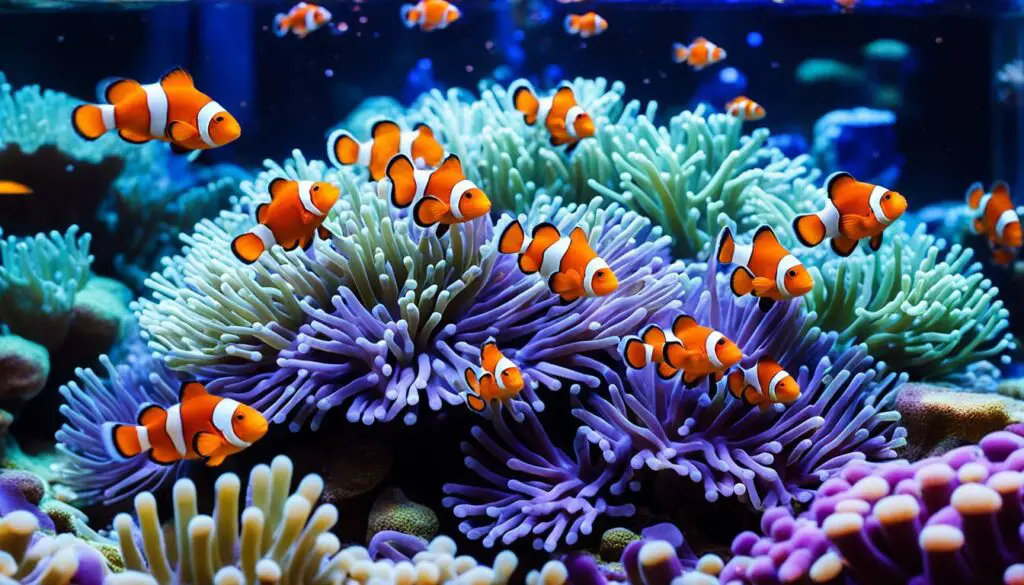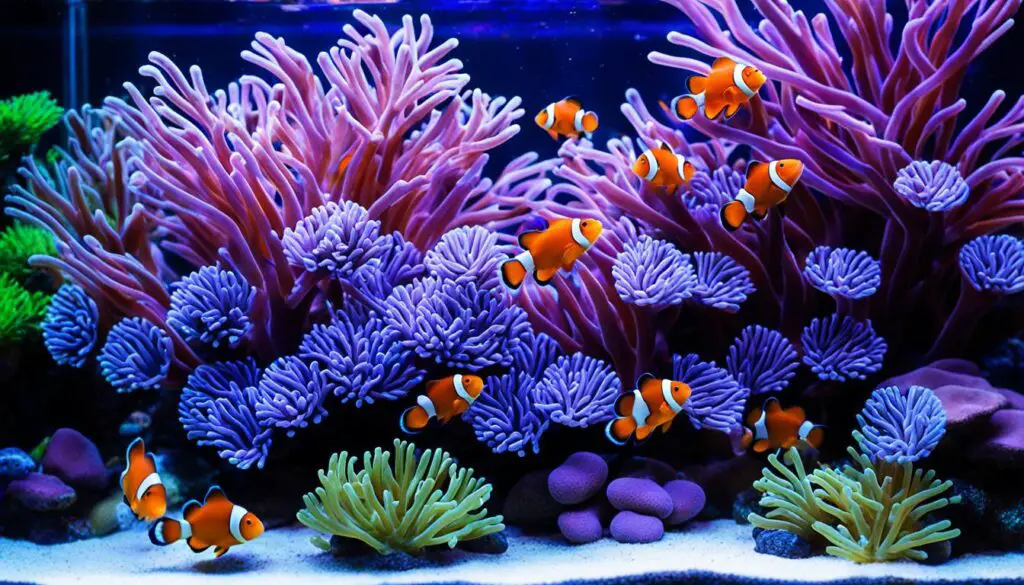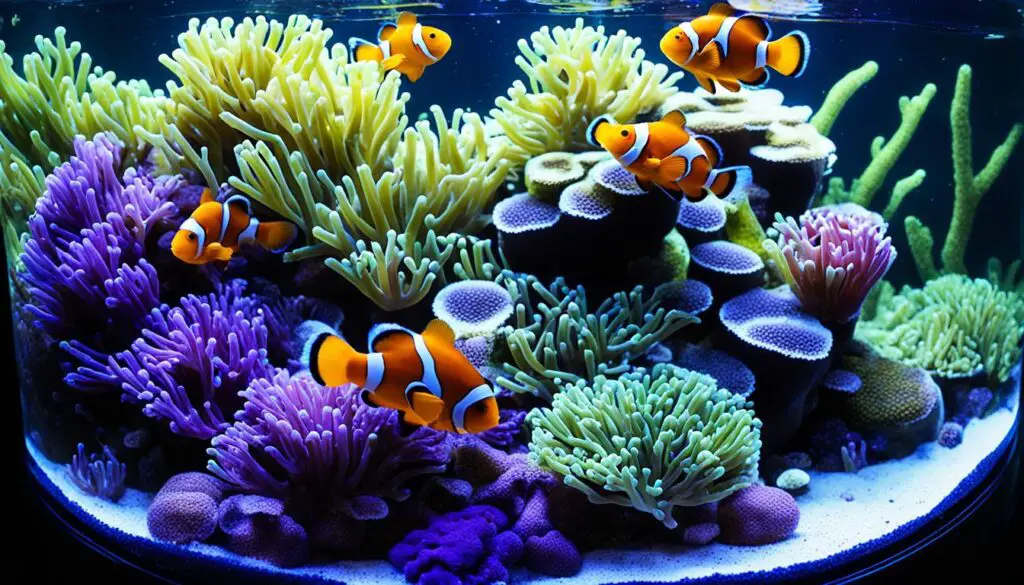What Sound Does A Octopus Make
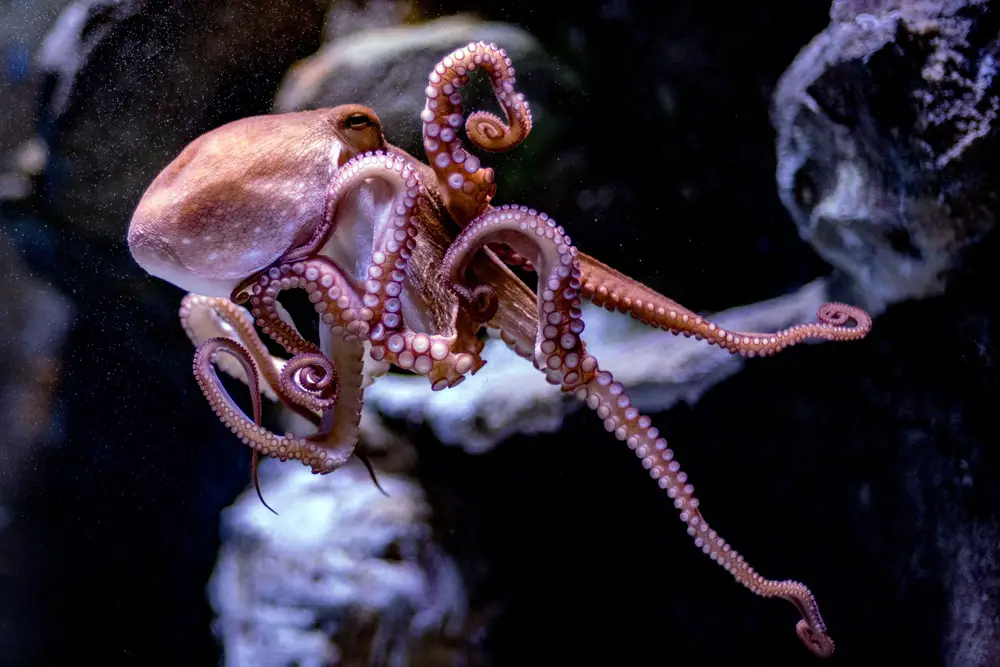
Introduction
What Sound Does A Octopus Make: Beneath the waves of our planet’s oceans lies a world of wonder and mystery, inhabited by creatures that defy our expectations at every turn. One such enigma of the deep is the octopus, a cephalopod renowned for its intelligence and astonishing adaptability.
We will embark on a journey into the fascinating and relatively uncharted territory of octopus acoustics. These elusive creatures have long perplexed marine biologists and researchers with their complex behaviors and remarkable problem-solving abilities. Yet, when it comes to their vocalizations, much remains shrouded in mystery.
Our quest to understand the sounds of octopuses will take us deep into the ocean’s depths, where these masters of camouflage and illusion thrive. We will delve into the latest scientific discoveries, shedding light on the mechanisms behind octopus sounds, their potential purposes, and the role they play in the intricate web of marine life.
Prepare to be captivated by the secrets of the deep as we unlock the underwater symphony of the octopus, revealing a world of intrigue and wonder that continues to inspire curiosity and awe in the hearts of explorers and scientists alike.
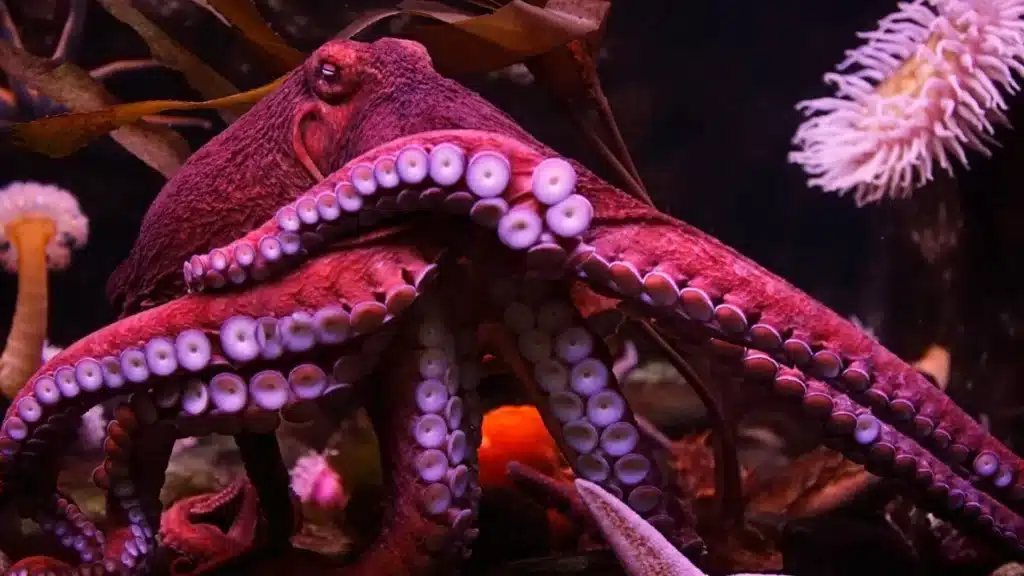
Do octopus communicate with sound?
Octopus and squid can hear.
But the fact they can hear raises the possibility that these intelligent animals may use sound to catch prey, communicate with one another or listen out for predators.
Octopuses are primarily solitary creatures, and their communication needs are different from those of more social animals like dolphins or whales. Rather than using elaborate songs or calls, octopuses rely on a variety of sounds that include clicks, pops, and high-frequency whistles. These sounds are produced by the movement of water through their siphons or by the rapid contraction of muscles in their bodies.
While the exact purposes of these sounds are still being studied, it is believed that they play a role in interactions between octopuses. They may be used for signaling aggression, courtship, or navigation. Some octopus species have even been observed using body patterns and color changes in conjunction with these sounds to convey complex messages.
While octopus communication with sound may not be as conspicuous as that of some other marine creatures, it adds another layer of intrigue to these already captivating animals. As scientists continue to unravel the secrets of the deep, we can look forward to a deeper understanding of the intricate ways in which octopuses communicate in their underwater world.
How do octopi communicate?
Researchers have published reports of octopuses gathering in large groups on the seafloor, sharing dens, using color and gesture to communicate, and forming cooperative hunting parties with fish.
Octopuses, often referred to as octopi (though “octopuses” is the correct plural form), are remarkable cephalopods known for their intelligence and complex behaviors. While they don’t communicate in the same way humans do through spoken language, they have evolved an array of fascinating and intricate methods for conveying information to each other and their surroundings.
- Body Language: Octopuses are masters of using their bodies to communicate. They can change the color and texture of their skin to express emotions, signal their intentions, or blend into their environment to avoid predators or prey. Rapid color changes can indicate agitation or excitement, while slow, subtle changes might signal curiosity or submission.
- Posture and Movement: Octopuses can alter their posture and movement to convey information. For example, they might raise their body to appear larger and more intimidating to potential threats or flatten themselves against the seabed to avoid detection.
- Jet Propulsion: Octopuses can produce quick bursts of water through their siphons to propel themselves away from danger or to move quickly towards prey. This jet propulsion may serve as both a form of communication and a means of locomotion.
- Chemical Signals: Octopuses release chemical cues, such as ink, into the water to deter predators or confuse prey. In some cases, this ink cloud may also serve as a smokescreen to facilitate escape.
While octopuses may not produce complex vocalizations like some other marine creatures, their ability to communicate through these various means underscores their adaptability and intelligence in the underwater realm. The study of octopus communication continues to reveal the rich tapestry of interactions that occur beneath the waves.
What are 10 interesting facts about octopuses?
10 Astounding Facts About Octopuses
- Octopus arms have a mind of their own.
- They have (literally) a lot of heart.
- Males die after mating, too.
- They’re masters of camouflage.
- Females give their lives to protect their eggs.
- They’re smart enough to use tools.
- They sometimes build underwater cities.
Octopuses are incredibly fascinating creatures that inhabit the world’s oceans. Here are 10 interesting facts about these remarkable cephalopods:
- Intelligence: Octopuses are among the most intelligent invertebrates, known for their problem-solving abilities and complex behaviors. They have large brains relative to their body size.
- Camouflage Masters: Octopuses are renowned for their exceptional camouflage skills. They can change both the color and texture of their skin to blend seamlessly with their surroundings, making them nearly invisible.
- Ink Defense: When threatened, octopuses release a cloud of ink into the water, creating a smokescreen that confuses predators and provides an opportunity for escape.
- Regenerative Powers: Octopuses have remarkable regenerative abilities. They can regrow lost arms, and in some cases, they can even regenerate an entire new body if injured.
- Three Hearts: Octopuses have three hearts. Two pump blood to the gills, while the third pumps oxygenated blood to the rest of the body.
- Incredible Speed: Despite their appearance, octopuses are agile and can swim surprisingly fast. Some species can reach speeds of up to 25 miles per hour (40 kilometers per hour).
- No Internal or External Skeleton: Octopuses are entirely soft-bodied, lacking both an internal and external skeleton. This allows them to squeeze through small openings and crevices.
- Short Lifespan: Most octopus species have relatively short lifespans, typically ranging from 6 months to 5 years, depending on the species. This is often tied to their reproductive cycle, as they die shortly after laying eggs.
Are octopus friendly to humans?
Octopuses are playful, resourceful, and inquisitive. Some species cuddle with one another, while others have been known to bond with humans. They are among the most highly evolved invertebrates and are considered by many biologists to be the most intelligent.
While they lack the warm-blooded, social tendencies of mammals, there is evidence to suggest that octopuses can exhibit a form of curiosity and interaction towards humans. Encounters between octopuses and divers have been documented, showcasing behaviors that hint at a level of inquisitiveness or even friendliness. Some octopuses have been observed extending their arms towards humans, as if reaching out in a non-threatening manner.
It is crucial to interpret such behavior with caution. Octopuses are primarily solitary animals, and their interactions may be driven by a variety of factors, including curiosity, territorial defense, or even the pursuit of food. Their complex nervous system and advanced problem-solving abilities lend them an air of intelligence, which might contribute to their seemingly friendly gestures.
However, it’s important to remember that octopuses perceive the world through a very different lens than humans. Their behaviors may not always align with our understanding of friendliness. Establishing a genuine rapport with an octopus is a rare and delicate achievement, one that requires time, patience, and an acute understanding of their unique cognition.
Do octopuses make sounds?
They make only a very little sound. An octopus is a silent hunter, slipping through briny waters with little, if any, sound. … There are a couple of reports of these sounds being produced in squid, but again, they seem to be a byproduct of jetting.” Also, apparently octopuses cannot hear.
Octopuses, known for their remarkable intelligence and adaptability, communicate in ways that are intriguingly different from many other marine creatures. While they lack vocal cords, they do have the ability to produce sounds. These sounds are created through a process called “jet propulsion,” which is the expulsion of water through a narrow opening. By rapidly expelling water from their bodies, octopuses can generate clicks or pops.
These sounds serve various purposes in their underwater world. For instance, they can be a form of communication between octopuses, potentially conveying warnings, mating signals, or territorial claims. Additionally, these clicks may be a means of echolocation, helping octopuses navigate and locate prey in their complex, visually limited environments.
However, these acoustic signals are subtle and challenging for humans to detect without specialized equipment. Researchers are still working to understand the full range and nuances of octopus communication through sound. Studying these auditory cues provides valuable insights into the behavior and social dynamics of these enigmatic creatures.
Can octopuses produce any noises at all?
Octopuses, despite their captivating and complex nature, are generally considered to be quiet creatures. They lack the vocal apparatus found in many mammals and birds, making them incapable of producing traditional sounds like chirps, clicks, or vocalizations. Unlike dolphins or whales, octopuses do not have specialized structures for emitting sound waves.
However, they are not entirely silent. Octopuses can generate subtle noises through a process known as jet propulsion. By expelling water forcefully through a small opening, they create a faint popping or clicking sound. This sound is a byproduct of their locomotion, used primarily for movement and navigation rather than communication.
These underwater pops serve as a form of echolocation, helping octopuses navigate their surroundings and locate prey. Additionally, in certain circumstances, these sounds might convey information to other octopuses. While not a primary mode of communication, these subtle acoustic cues may play a role in their complex social interactions, including mating rituals and territorial disputes.
While octopuses are not known for producing elaborate or varied sounds, they are capable of generating faint noises through their unique jet propulsion method. These sounds offer a fascinating glimpse into the intricate ways these creatures interact with their environment and potentially with one another.
Do octopuses communicate with each other?
Octopuses are intriguing creatures with a range of sophisticated behaviors, and communication is indeed a part of their repertoire. While they don’t communicate in the same way humans do, they have developed a variety of subtle signals and displays to convey information to one another.
One of the primary modes of octopus communication is through body language. They use an array of color changes, skin texture alterations, and postural shifts to express their emotional state, intentions, and potentially even warnings. For example, a darkened coloration may signal aggression or territoriality, while a more vibrant display might indicate excitement or courtship.
Beyond visual cues, octopuses also employ tactile communication. They use their sensitive arms to touch, probe, and interact with other octopuses. This can serve as a way to convey information about their intentions, establish dominance, or engage in mating behaviors.
While octopuses do not communicate in the conventional sense, they possess a rich and nuanced array of non-verbal signals and behaviors to convey information to one another. Their unique methods of communication reflect their complex and highly adaptable nature, offering a fascinating window into the social dynamics of these enigmatic creatures.
Can I hear an octopus make sounds in an aquarium or while scuba diving?
Hearing an octopus make sounds in an aquarium or while scuba diving is a rare and challenging experience. The sounds octopuses produce are typically subtle and often fall below the threshold of human hearing. These noises are generated through a process known as jet propulsion, where water is expelled forcefully to facilitate movement.
In controlled environments like aquariums, the ambient noise level can be higher, making it even more difficult to discern any sounds produced by the octopus. Additionally, the equipment used in aquariums, such as pumps and filtration systems, can further mask any potential sounds emitted by the octopus.
While scuba diving in the open ocean, the chances of hearing an octopus are even slimmer. The vastness of the underwater environment and the ambient noise from waves, currents, and marine life make it highly unlikely for a diver to detect the faint sounds of an octopus.
While octopuses are capable of producing sounds through jet propulsion, hearing these sounds in an aquarium or while scuba diving is exceptionally challenging. The subtle nature of their noises, combined with the ambient noise of their surroundings, makes such an experience extremely rare.

Conclusion
Our journey into the world of octopus sounds has been a voyage of discovery, unearthing the mysteries hidden within the depths of the ocean. While these elusive creatures are renowned for their astounding intelligence, their vocalizations have remained a puzzle, awaiting the diligent efforts of marine researchers to decode.
Through our exploration, we’ve gained valuable insights into the acoustic repertoire of octopuses. Although they lack the melodic melodies of whales or the playful clicks of dolphins, octopuses employ a diverse range of sounds, from pops and clicks to subtle movements, which serve various functions in their complex lives.
These sounds, we’ve learned, play a vital role in communication, mating rituals, and possibly even hunting strategies. The octopus’s ability to adapt its vocalizations to different situations underscores its remarkable versatility as a cephalopod.
We are left with a profound appreciation for the intricacies of life in the ocean’s depths. The enigmatic sounds of the octopus remind us that there is still much to learn about the wonders of our planet, particularly in the uncharted territories beneath the waves.
This journey serves as a testament to the enduring curiosity of humanity and our unwavering commitment to understanding the secrets of the natural world. Octopuses may remain elusive and mysterious, but our quest to unravel their sonic language continues, promising further revelations in the captivating realm of marine science.

